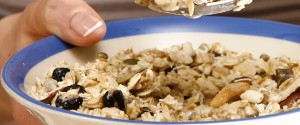Limit Added Sugars

Many people eat more sugar than they realize, because it is added to so many beverages and food. Added sugar results in added calories, which research claims increases the likelihood of heart disease, diabetes, and obesity. While this does not necessarily mean you should avoid all added sugar, it is important to limit added sugars in your diet. All forms of sugar are used by your body for energy. In fact, dairy, vegetables, and fruit all contain sugar naturally. Added sugar refers to the sugars and syrups which are added during processing. Sports drinks, energy drinks, sodas, and desserts all contain high levels of added sugar. Sugar helps make food and beverages sweeter, and thus more appetizing. Sugar also helps balance the acidity of foods while acting as a bulking agent in ice cream and baked foods. In the case of bread products, it fuels fermentation and gives baked goods color and texture. It also helps preserve foods and boosts flavor.
Who is it good for?
Added sugar contributes extra calories to your diet but does not provide any nutritional value. Eating too many foods with solid fats and added sugar can lead to serious health problems.
Thus, the amount of added sugar you intake should be monitored carefully, especially as you grow older. The United States Department of Agriculture (USDA) suggests that no more than 15% of your total daily calories come from solid fats or added sugars, while the American Heart Association (AHA) states that no more than 100 calories a day should come from added sugar. According to some studies, however, the average American gets approximately 355 calories of sugar a day—an excessive amount. There are several potential health problems that can be caused by an excess of sugar in your diet. Poor nutrition, for starters, can occur because you are filling up on foods with added sugar, making you less hungry and more likely to avoid foods that contain important minerals, vitamins, and nutrients. You are also much less likely to drink water or milk, which could cause you to become dehydrated. Sugar can also lead to weight gain. While there is no single cause of obesity, added sugar is certainly a contributor. Furthermore, sugar increases your level of triglycerides, which are a type of fat tissue. This alone can significantly increase your risk of heart disease. Lastly, sugar can be harmful to your teeth. The more sugar you eat, the more likely you are to develop cavities.
Compare
Unfortunately, it isn’t that easy to discover added sugars by simply looking at the nutrition facts panel on a particular food product. This list includes both natural and added sugars. It is important to look for key words in the list of ingredients, such as corn sweetener, corn syrup, malt sugar, and syrup. According to the American Cancer Society, nearly half of the sugar intake in an average American diet comes from sweetened beverages like energy drinks or soda. Another quarter comes from sweet treats like ice cream, cakes, cookies, and candy. Switching to water or milk and limiting the number of treats you eat throughout the day can go a long way in reducing the amount of sugar you are consuming on a daily basis.






